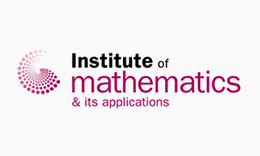Mathematics (with integrated year in industry) Code G10N Attend an Open Day Attend an Open Day
Apply NowKey Facts
G10N-
UCAS Tariff
128 - 120
-
Course duration
4 years
Available for September start 2026
Further details on entry requirements
Apply NowMathematics has fascinated humanity for thousands of years, from the ancient world to the present day, with numbers, patterns and structures leading to the development of mathematical conjectures, reasonings and mathematical proofs. The BSc Mathematics degree at Aberystwyth University provides fascinating and challenging learning that combines the identification and analysis of shapes and patterns with data collation and calculation.
The course covers the essential core disciplines of algebra, calculus, geometry, differential equations, probability, and statistics, supplemented by a wide choice of optional modules, allowing you to specialise in particular areas or pursue a diverse syllabus. You will be taught though lectures and practical classes with good staff/student ratios in a supportive learning environment.
In studying Mathematics, you will develop clear analytical thought processes, problem-solving abilities and the capacity for logical argument. Such skills are highly transferable and attractive to employers in a range of sectors. Mathematics graduates make significant contributions to vital areas such as science, engineering, technology and finance.
This degree is accredited by the IMA (Institute for Mathematics and its Applications), the UK's learned and professional society for mathematics, directly contributing to your recognition as a Chartered Mathematician.
This four-year course includes an integrated year in industry, enabling you to gain the valuable experience that employers look for, giving you a head-start in the competitive job market on graduation.
Course Overview
Modules September start - 2026
Please note: The modules listed below are those currently intended for delivery during the next academic year and may be subject to change. They are included here to give an indication of how the course is structured.
| Module Name | Module Code | Credit Value |
|---|---|---|
| Algebra * | MA10510 | 10 |
| Calculus * | MP10610 | 10 |
| Career Planning and Mathematical Skills Development * | MA10720 | 20 |
| Coordinate and Vector Geometry * | MA10110 | 10 |
| Differential Equations * | MA11210 | 10 |
| Further Algebra and Calculus * | MP11010 | 10 |
| Mathematical Analysis * | MA11110 | 10 |
| Probability * | MA10310 | 10 |
| Statistics * | MA11310 | 10 |
| Module Name | Module Code | Credit Value |
|---|---|---|
| Mathematical Physics * | PM26020 | 20 |
| Applied Statistics | MA26620 | 20 |
| Complex Analysis * | MA21510 | 10 |
| Introduction to Numerical Analysis and its applications * | MA25220 | 20 |
| Linear Algebra * | MA21410 | 10 |
Options
| Module Name | Module Code | Credit Value |
|---|---|---|
| Advanced Dynamics | MA25710 | 10 |
| Distributions and Estimation | MA26010 | 10 |
| Hydrodynamics 1 | MA25610 | 10 |
| Introduction to Abstract Algebra | MA20310 | 10 |
| Real Analysis * | MA20110 | 10 |
| Module Name | Module Code | Credit Value |
|---|---|---|
| Mathematics Year in Industry | MAS0160 | 60 |
| Mathematics Year in Industry | MAS0260 | 60 |
| Module Name | Module Code | Credit Value |
|---|
Options
| Module Name | Module Code | Credit Value |
|---|---|---|
| Asymptotic Methods in Mechanics | MA34210 | 10 |
| Differential Geometry of Curves and Surfaces | MA30510 | 10 |
| Graphs and Networks | MA32410 | 10 |
| Group Theory | MA30110 | 10 |
| Hydrodynamics ii | MA34610 | 10 |
| Information Theory | MA35810 | 10 |
| Norms and Differential Equations | MA30210 | 10 |
| Numerical Solution of Partial Differential Equations | MA33520 | 20 |
| Operator Algebra | MA38310 | 10 |
| Partial Differential Equations | MA34110 | 10 |
| Probability and Stochastic Processes | MA37410 | 10 |
| Project in Mathematics or Statistics | MA39910 | 10 |
| Spectral Theory | MA38010 | 10 |
| Statistical Inference and Linear Models | MA36820 | 20 |
| Stochastic Models in Finance | MA37810 | 10 |
| Theory of Elasticity | MA33410 | 10 |
| Topics in Biological Statistics | MA35210 | 10 |
* Also available partially or entirely through the medium of Welsh
Careers
Teaching & Learning
Student Testimonials
Typical Entry Requirements
UCAS Tariff 128 - 120
A Levels ABB-BBB to include B in Mathematics
GCSE requirements (minimum grade C/4):
English or Welsh and Mathematics
BTEC National Diploma:
DDM-DMM with B in A level Mathematics
International Baccalaureate:
30-28 with 5 points in Mathematics at Higher Level
European Baccalaureate:
75%-65% overall with 7 in Mathematics
English Language Requirements:
See our Undergraduate English Language Requirements for this course. Pre-sessional English Programmes are also available for students who do not meet our English Language Requirements.
Country Specific Entry Requirements:
International students whose qualification is not listed on this page, can check our Country Specific Entry Requirements for further information.
The University welcomes undergraduate applications from students studying the Access to Higher Education Diploma or T-level qualifications, provided that relevant subject content and learning outcomes are met. We are not able to accept Access to Higher Education Diplomas or T-levels as a general qualification for every undergraduate degree course.
Our inclusive admissions policy values breadth as well as depth of study. Applicants are selected on their own individual merits and offers can vary. If you would like to check the eligibility of your qualifications before submitting an application, please contact the Undergraduate Admissions Office for advice and guidance.

